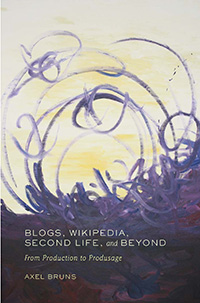You are here
Nielsen Online: Produsage Trends in Australia and New Zealand
Getting into the ANZAC Day spirit here at Produsage.org: there's an interesting news release over at Nielsen Online, detailing results of their research into user-led content generation in Australia and New Zealand. As it turns out, Internet users in both countries are already pretty active in their online participation - but a closer look at the stats released by Nielsen's market researchers also reveals that their activities remain largely limited to sharing profiles, photos and links at present, and to accessing user-led content rather than necessarily generating it.
The study also points to a gradual increase in sophistication as participants develop their produsage skills, though - "once consumers establish familiarity ..., they then typically progress to become more involved with more advanced ... activities such as actively editing and commenting on ... content". This supports what many produsage researchers have long suspected (and one of my PhD students, Rachel Cobcroft, is currently studying the trajectories of users from mere life-cachers to active community members in Flickr, for example), and underlines why open boundaries and fluid heterarchical structures which allow for new users' entry and gradual move to greater involvement in the community are so important to produsage projects.
Interestingly, this discrepancy is particularly strong for blogs and wikis, where considerably more participants are users rather than active produsers of available content (nearly 50% read blogs, less than 20% write them; nearly 40% use wikis, less than 5% contribute). For activities involving online profiles (Facebook, MySpace, LinkedIn, etc.) and audiovisual materials this distinction seems less pronounced. My reading of this is that the form of public writing required for blogs and wikis - compiling and evaluating information, and providing a clear argument outlining the author's views - is still seen as a more arduous task than simply sticking up the latest happy snaps and video clips on Flickr and YouTube, or even as more demanding than updating a personal profile with the user's latest activities.
Indeed, Nielsen's researchers point out that "the barrier to ... use most identified by consumers is the perceived time-intensiveness", and this supports my argument in Blogs, Wikipedia, Second Life, and Beyond: From Production to Produsage (following Yochai Benkler's work) that to encourage participation in produsage, one absolutely crucial prerequisite is the granularity of participation: the easier and the less time-intensive it is for potential produsers to commit at least "random acts of participation", the more likely they are to get involved. With this in mind, it's perhaps no longer so surprising that "early adopters are most likely to be male and aged over 35" - so it's not necessarily the teen and post-teen 'digital natives' who are the first to be involved in produsage.
As a side note, as far as I'm concerned the report also demonstrates ably why we need to introduce terms such as 'produsage' into this debate. Nielsen chooses to operate with the unwieldy construct 'consumer-generated media' (CGM), which is simply oxymoronic: if these people are indeed generating media content, they're clearly no longer consumers in any sense of the word. (It gets even more confusing when Nielsen reports on what percentage of Net users "consume CGM content"...) We've got to get past this industrial-age producer/consumer dichotomy!
Given the perpetual trans-Tasman rivalry between the two nations, New Zealand readers may be pleased to find that for now, their country appear to lead this particular contest, by the way - go on then, Aussies, put some effort into it...
- Snurb's blog
- Log in to post comments
- 10971 reads
 Printer-friendly version
Printer-friendly version


